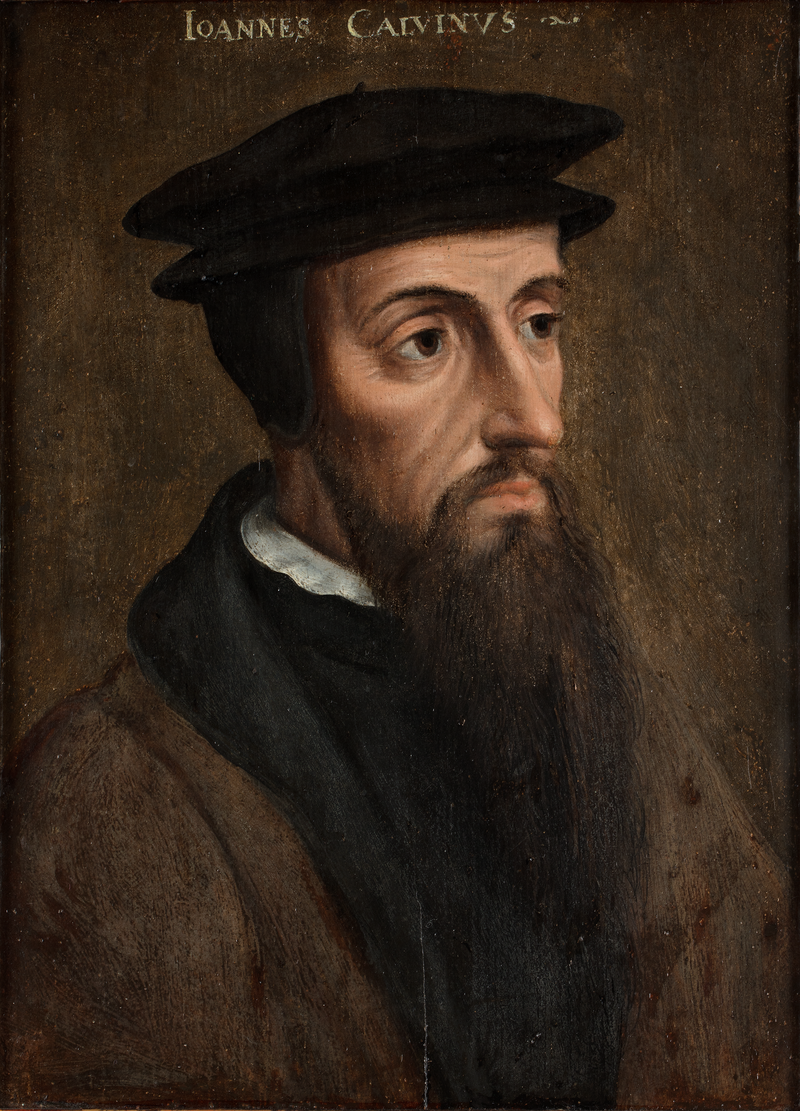The Clarity and Certainty of Scripture among the Swiss Reformers Part IV
The fourth of four posts written by Jim West highlighting the scriptural emphasis of the reformers
Part IV: John Calvin

John Calvin Portrait | Wikimedia
Catch up on the series with Part I Zwingli , Part II: Oecolampadius, and Part III: Bullinger.
Of the Swiss Reformers, it is John Calvin who has the most thoroughly developed understanding of the clarity and certainty of Scripture. Zwingli, Oecolampadius, and Bullinger never set out to write anything like a ‘Loci’ or an ‘Institutes’ but Calvin did. Naturally, then, his exposition of the perspicuity of Scripture is the most well thought out and descriptive. Of course, we cannot know what Zwingli or Oecolampadius would have thought about Calvin’s viewpoint and this is not the place to discuss the many contacts between Calvin and Bullinger on many theological topics. But we can be fairly certain that the Reformed tradition on the whole has adopted Calvin’s perspective.
The space Calvin devotes to the Scriptures in his 1559 Institutes is fairly astonishing. His treatment is found in Inst. I,6-9. Here he describes the need of Scripture as our guide to God, the necessity of the Spirit’s aid in interpreting the text, the full credibility of Scripture, and the problem of the fanatics and their replacement of Scripture with personal revelation.
Calvin pointedly writes
Let it therefore be held as fixed, that those who are inwardly taught by the Holy Spirit acquiesce implicitly in Scripture; that Scripture, carrying its own evidence along with it, deigns not to submit to proofs and arguments, but owes the full conviction with which we ought to receive it to the testimony of the Spirit.
This means that Scripture is both clear enough to be adhered to and certain enough that it needs no external proof or arguments in order to justify acceptance of it as true. This viewpoint became the standard understanding of both the clarity of Scripture and its certainty. Interestingly, though, Calvin then spends the entirety of Inst. I,8 in providing proofs for the reliability of the Bible; from the Old Testament, the New Testament, and Church history. Given his ongoing struggles with the Enthusiasts, however, it is not surprising that he felt compelled to provide these proofs. That he does so nevertheless undermines his premise that such proofs are not needed. Remarkably, he knows this to be the case and begins Book I, chapter 8 with the following sentences:
IN vain were the authority of Scripture fortified by argument, or supported by the consent of the Church, or confirmed by any other helps, if unaccompanied by an assurance higher and stronger than human judgment can give. Till this better foundation has been laid, the authority of Scripture remains in suspense. On the other hand, when recognising its exemption from the common rule, we receive it reverently, and according to its dignity, those proofs which were not so strong as to produce and rivet a full conviction in our minds, become most appropriate helps.
This conundrum is only resolved when believers come to the conclusion that
As they feel that without the Spirit of God they are utterly devoid of the light of truth, so they are not ignorant that the word is the instrument by which the illumination of the Spirit is dispensed. They know of no other Spirit than the one who dwelt and spake in the apostles—the Spirit by whose oracles they are daily invited to the hearing of the word.
Conclusion
The Reformers cited above and the several whose names and ideas we lack space to discuss like Konrad Pellikan and Peter Martyr Vermigli, were not the last to assert the notion of the clarity and certainty of Scripture. So influential were their views that even a more recent theologian of the Reformed tradition also held to the doctrine. ‘The Bible is a plain book. It is intelligible by the people. And they have the right, and are bound to read and interpret it for themselves; so that their faith may rest on the testimony of the Scriptures, and not on that of the Church. Such is the doctrine of Protestants on this subject.’ This idea originated with the Reformers of Switzerland and survives today among the Reformed, their theological heirs.
Jim West is Lecturer in Biblical and Reformation Studies, Ming Hua Theological College / Charles Sturt University.



